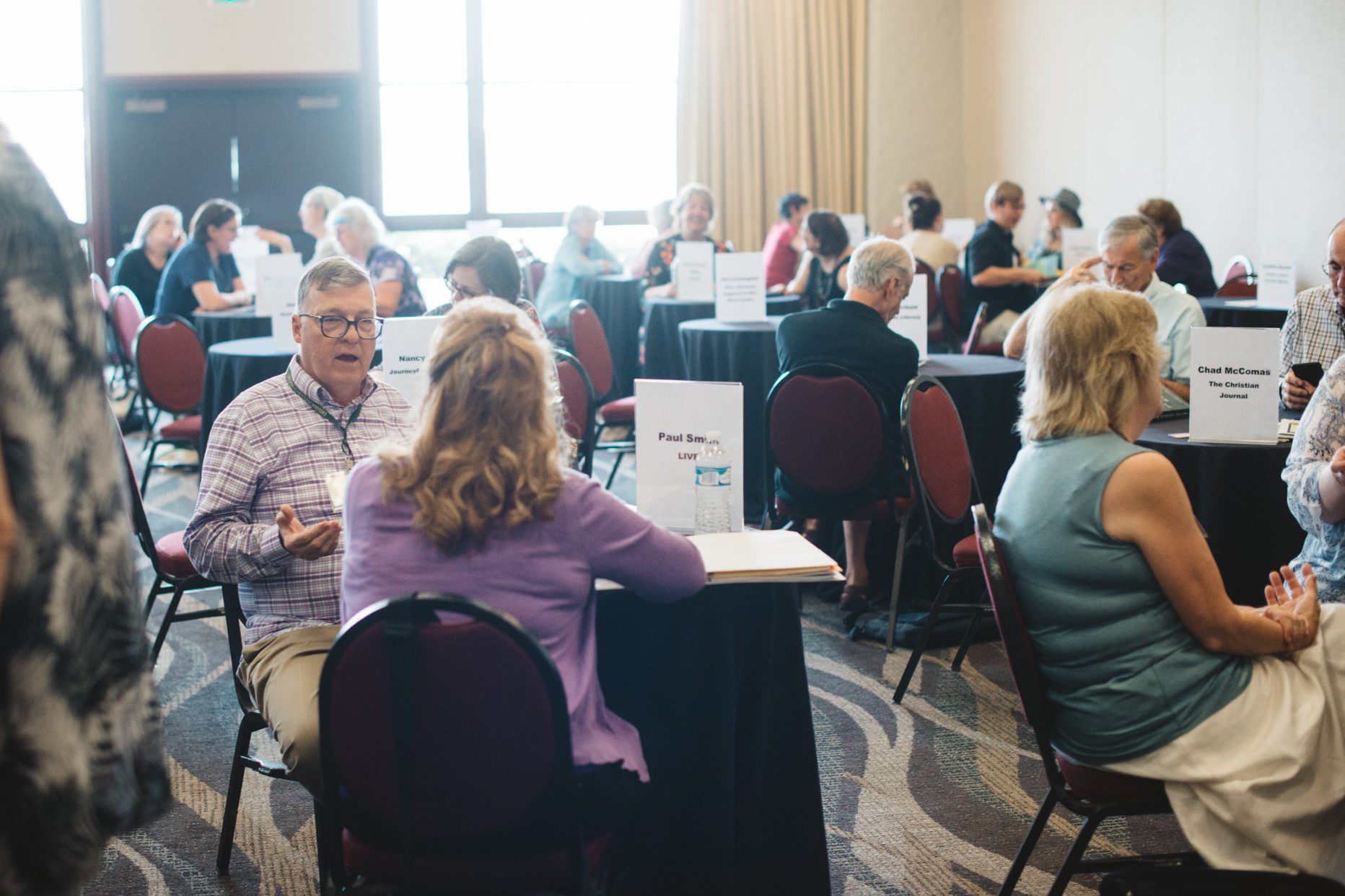Get the Most from Your Conference Experience
by Rachelle Gardner
It’s almost conference time! Here are a few hints to increase your chance of having a positive conference experience.
- Go with a goal. Know why you’re going to the conference and conduct yourself while there with the idea of reaching your goal. Make sure your goal is something within your control. Are you going to meet potential agents? To get publishing houses interested in your book? To learn about the industry? To meet other writers? Those are all fantastic goals, realistic and within your control.
- Come prepared with a business card, one-sheet, and/or a book proposal for the editor or agent to look at and/or take with them. No need to bring your entire manuscript, but feel free to bring a chapter or two printed out in case anyone wants to take a look. If an editor/agent is interested, they may ask you to send the proposal or full manuscript after the conference.
- Talk to people, get involved, get to know people. Don’t let your introverted side take over. Meeting people and making friends is one of the most valuable things that happens at a writing conference. If this is hard for you, the best way to meet people is see if there are ways you can help with the conference!
- If you don’t have a project that’s ready to pitch, decide if it’s worth your time to make any one-on-one appointments. Here’s where you’ll find differing opinions. Personally, I don’t mind if some writers use their appointment time with me to float some ideas and get advice and input rather than pitching me a project. However, agents and editors are primarily there to find authors, and some may not appreciate you taking their appointment time with no possibility of a viable business connection. You can also take every other possible opportunity to get your questions answered: agent and editor panels, late-night chats, mealtimes, etc.
- Bringing a novel? If you haven’t written words 1 through 85,000 (or so) of your novel, wait until it’s ready, unless you’re just trying to pick the agent or editor’s brain, in which case you’ll want to tell them that. With fiction, we can’t consider a manuscript until it’s complete, edited, and polished.
- Bringing a nonfiction project? A completed proposal and some sample chapters are all you need.
- Be professional and courteous. Avoid the bathroom pitch. It’s okay to pitch to an agent or editor in a one-on-one meeting, or at a meal, or any other situation. Agents and editors EXPECT to be pitched. But not in the bathroom, even while handwashing.
Most of all, I hope you enjoy yourself and make some new friends!
~









